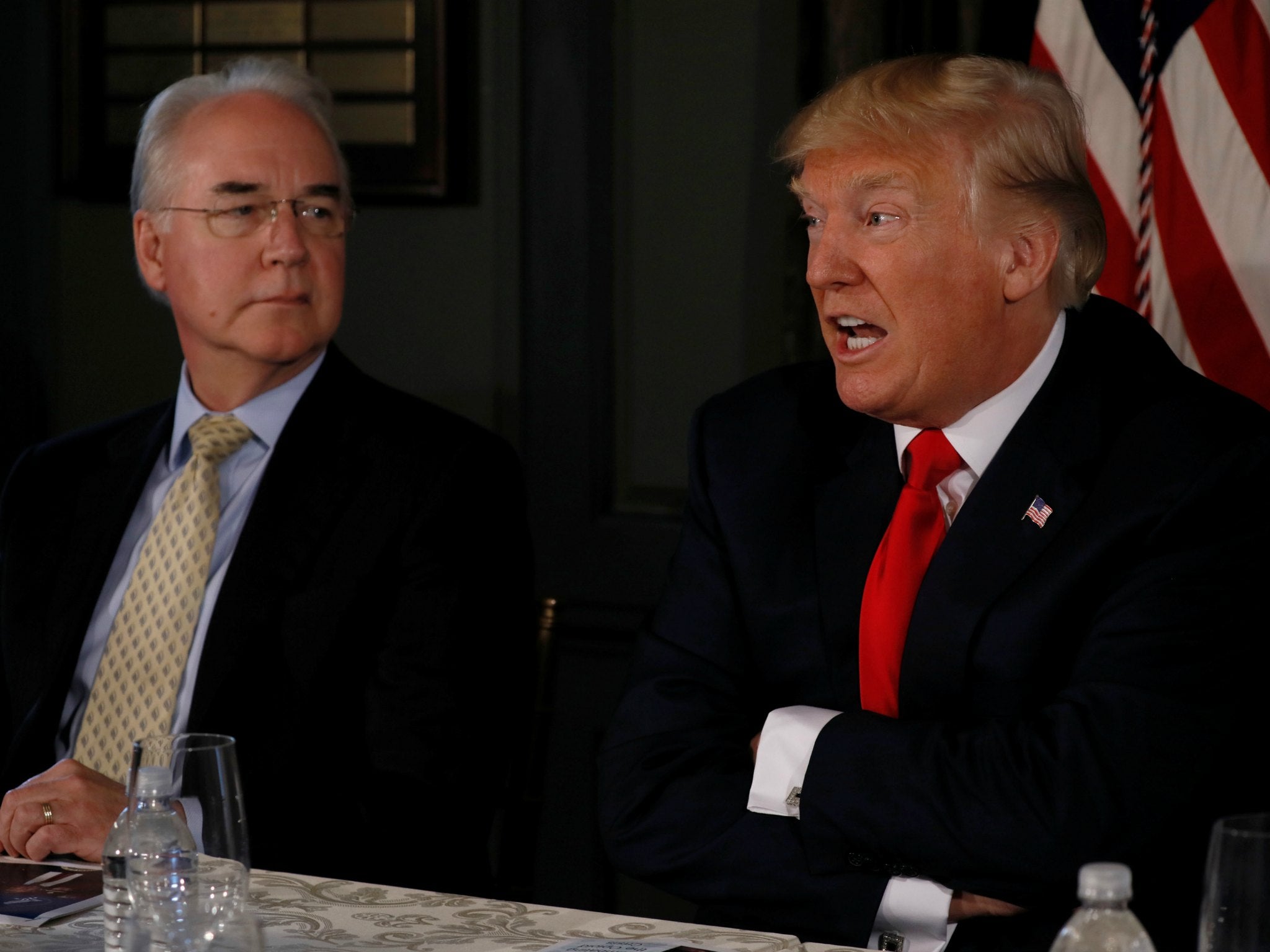Donald Trump yet to make opiod national emergency official two weeks after announcing it
Two weeks after Trump cited a 'national emergency', administration still doing 'legal review'

Your support helps us to tell the story
From reproductive rights to climate change to Big Tech, The Independent is on the ground when the story is developing. Whether it's investigating the financials of Elon Musk's pro-Trump PAC or producing our latest documentary, 'The A Word', which shines a light on the American women fighting for reproductive rights, we know how important it is to parse out the facts from the messaging.
At such a critical moment in US history, we need reporters on the ground. Your donation allows us to keep sending journalists to speak to both sides of the story.
The Independent is trusted by Americans across the entire political spectrum. And unlike many other quality news outlets, we choose not to lock Americans out of our reporting and analysis with paywalls. We believe quality journalism should be available to everyone, paid for by those who can afford it.
Your support makes all the difference.Despite having called pervasive opioid addiction in America “a national emergency”, Donald Trump has yet to formally unlock federal assistance by declaring the national emergency urged by a high-level commission.
Two weeks after Mr Trump told reporters “we’re going to spend a lot of time, a lot of effort, and a lot of money on the opioid crisis”, the administration is still undertaking “a legal review”, a White House spokesman said.
The apparent delay has frustrated health providers and advocates on the front line of an epidemic that, according to a report from the President's Commission on Combating Drug Addiction and the Opioid Crisis, contributes to 142 Americans dying each day from drug overdoses - more than from car crashes and gun violence combined.
“We’re a little mystified as to why it hasn't happened yet”, said Mark Dunn, director of public policy at the National Association of Addiction Treatment Providers. “It would be unusual for any president of the united states to make an announcement like that in front of the cameras and then not follow through, so we are still hopeful that he meant what he said.”
Declaring a national emergency could provide more money for treatment or dispatch healthcare providers to areas where they are most needed. Mr Trump could approve waivers allowing states to treat addiction through Medicaid, a health insurance program for low-income Americans.
In its report, the opioid crisis panel urged the president to authorize Medicaid waivers and to declare a national emergency as a way to “force Congress to focus on funding” and allow the White House to take a leading role in combatting the epidemic.
“It would also awaken every American to this simple fact: if this scourge has not found you or your family yet, without bold action by everyone, it soon will,” the report said. “You, Mr. President, are the only person who can bring this type of intensity to the emergency and we believe you have the will to do so and to do so immediately.”
The White House spokesman said Mr Trump “is considering not just the emergency authorities outlined in the report, but other potential options as well, to ensure we’re doing all that we can to tackle this crisis head on”.
“The President recently instructed his administration to take all appropriate and emergency measures to confront the opioid crisis”, the spokesman said.
To Mark Brennan, who has watched a shifting rotation of drugs devastate communities - methamphetamine giving way to synthetic drugs, then opiods, then heroin - the need for more assistance is unambiguous.
“Is it a national emergency? Of course it is. We really have to attack this”, said Mr Brennan, who is executive director of the West Virginia Behavioral Healthcare Providers Association.
But Caleb Alexander, co-director of the Johns Hopkins Center for Drug Safety and Effectiveness said he wasn’t sure “anyone’s holding their breath” awaiting a formal declaration given the president’s record of having “changed his thinking on a topic”.
“This epidemic has been getting worse in front of our eyes for 20 years, and each of the past five years I’ve said it’s hard to imagine it getting worse and I’ve been proven wrong” Mr Alexander said. “I do think we have strong bipartisan support for comprehensive intervention and we need strong leadership from the top - whether or not we’ll see that in this administration remains to be seen.”
Join our commenting forum
Join thought-provoking conversations, follow other Independent readers and see their replies
Comments